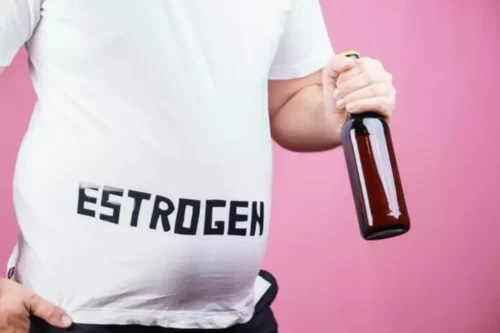В горната част ще видите лайв залозите за футбол, защото е най-предпочитан и след това за волейбол, тенис, баскетбол, хокей на лед, тенис на маса, плажен волейбол и други. Тук се предлагат събития от цял свят и през цялото денонощие ще имате спортни събития, на които да залагате. В сайта на 8888.бг ще откриете и игри със зарове, които са доста лесни и дават възможност за бърза печалба, но изборът от тях не е много голям.
За ротативките, които се предлагат в платформата можете да се възползвате и от демо версиите като там можете да залагате виртуални средства. Безплатната версия ще бъде активна след като влезете с вашите данни в сайта. В него от лявата страна са поместени спортни събития, за които има в момента пазари.
Зареди сметка
За да се регистрирате в платформата за залагания трябва да попълните формуляра за регистрация, който изисква попълването на лични данни. Екипът, който обслужва клиентите е много важен за всяка платформа за залагания. 8888.бг се е погрижил да предложи най-актуалните начини за връзка – телефон, електронна поща, чат на живо.
Нови игри
В момента са налични Super Sic Bo и First Person Craps, като можете да направите залози от 0,40 до 2000 лева. Megaways е една от най-популярните категории слот игри, която е особено харесвана от потребителите именно поради лесните и големи печалби, които обещава. Правилата са лесни, не се изисква специфична стратегия, а просто късмет.
Как да играя безплатни игри в казино 8888.bg?
Всички заявки се обработват моментално, като депозитите обикновено пристигат в рамките на няколко минути. За тегленето може да отнеме повече време, зависейки от метода, който сте избрали, като максимумът е 5 работни дни с банков трансфер. Минимумът за депозиране с всички методи е 10 лева, а лимитът за депозиране 4999 лева, като единственото изключение е А1, където лимитът е 30 лева. Когато става въпрос за теглене – минимумът с EasyPay и FastPay е 20 лева, а с другите методи – 40 лева. Установен е проблем със зареждане на заявеното от Вас съдържание.Моля, използвайте бутона за обновяване.
регистрация
Допълнително, хората, които го инсталират получават специален подарък от 10 безплатни врътки. Ако желаете да залагате с мобилно приложение, то ще останете очаровани от 8888.бг. За щастие, 8888бг е букмейкър, който е обмислил това и предлага достъп както до мобилна версия, така и до мобилно приложение. Едва ли се изненадвате, но рулетката е една от най-харесваните игри на маса, при която печалбите са много големи.
ТОП 10
В сайта на 8888 бг ще откриете много различни Megaways игри за всеки вкус. И разбира се – 8888бг предлага и страхотно разнообразие от безплатни игри, на които можете да се насладите. Тези демо версии на игрите ще ви дадът възможност да изпробвате една игра преди да инвестирате в нея, както и да изградите стратегия, преди да заложите пари. Игрите на маса винаги са били едни от най-популярните в казината.
Дизайн и навигация в 8888.bg
Седалището на ТОП БЕТ се намира в град София, а централен офис може да бъде открит на Цариградско шосе 40. За всички потребители на 8888.бг, които желаят да залагат през мобилното си устройство лесно и бързо, то има страхотно 8888 бг мобилно приложение налично. То може да бъде свалено както на Android, така и на iOS, като инсталирането не отнема повече от няколко минути. Блекджек е една от най-популярните игри с карти, която ще откриете в казиното на живо на 8888бг.
- Най-популярните пазари са отбелязване на първи гол, резултат за първите десет минути.
- 8888.бг се е погрижил да предложи най-актуалните начини за връзка – телефон, електронна поща, чат на живо.
- С тези залози можете да спечелите преди събитието да е свършило.
- Достъпна е в раздела На живо, защот се предлага за вече започнали събития.
- Когато става въпрос за теглене – минимумът с EasyPay и FastPay е 20 лева, а с другите методи – 40 лева.
Няма как да пропуснем покера – в 8888.bg ще намерите много голямо разнообразие от маси за покер, като ще можете да играете заедно с други играчи и истински крупиета. При тази игра трябва да имате добра стратегия, както и знания, за да можете да имате печалби. Има различни версии, включително класически, Texas Hold’m и Three Card Poker. Категорията ТОП игри е доста харесвана от потребителите, тъй като там ще можете да видите всички най-харесвани и играни опции в казино на живо. Тази опция е особено подходяща за хората, които са нови в сайта и нямат точна представа какво искат да играят. Както можете да предположите, 8888бг предлага и много игри с джакпоти.
Изберете най-удобния
След като сте изпълнили всички стъпки по регистрация, на телефона ви ще бъде изпратен код за активация. Трябва да го въведете до петнадесет минути, след като сте го получили и вече можете да започнете да играете. Всеки регистриран потребител може да играе демо версии на игри в 8888.бг, като просто избере тази опция.
Като цяло – 8888.бг е страхотно казино, което си заслужава вниманието. Кажете на касиера сумата, която желаете да депозирате по своята игрална сметка на сайта 8888.bg и ЕГН-то, с което сте регистрирали Вашия акаунт на сайта 8888.bg. Най-популярните пазари са отбелязване на първи гол, резултат за първите десет минути. С тези залози можете да спечелите преди събитието да е свършило. Депозирането на пари в 8888.бг е лесно – това, което трябва да направите е да влезете в своя акаунт и да кликнете на бутона ‚ДЕПОЗИТ‘, който ще видите горе в дясно.
Да, 8888 предлага лайв стрий с перфектно качество за спортни събития. Класически банков трансфер и сайта за е-банкиране ePay.bg са последните две опции. Няма място за притеснение относно сигурността на вашите данни тъй като сайтът използва криптирана връзка, която е от последно поколение. Налични са и нужните документи за обраотка на лични данни.
Read more about https://www.glsicurezza.com/kazino-igri-bezplatni-onlajn-slot-igri/ here.





